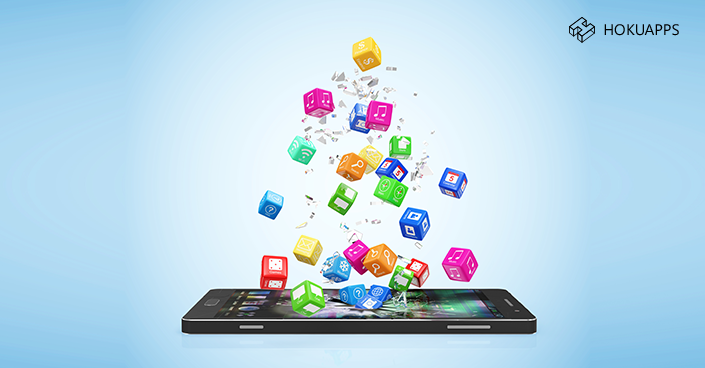- Products
- Solutions
- Services
- Resources
- Customer Success
- Company
- Sign In
- Contact Us

Digital Transformation enabler helping enterprises evolve by connecting technology
Take a look at upcoming webinars and special events
HokuApps news and media coverage
Be with the best. Solve real problems
Get in touch with our experts here
Explore our extensive collection of online resources here
Information and insight on transformation to the Digital Workplace
Quick Guides provide concise information on a variety of topics
Discover the essence of HokuApps’ products
Learn all about HokuApps’ cutting-edge enterprise mobility technology

This is not the usual tug-of-war between two tech behemoths, considering the global smartphone market rests on a duopoly between iOS and Android. However, in terms of volume, Android leads the market with a massive 87% share, whereas iOS comes to a remote second with a meager 12% share.
While the latter is a forerunner in developing economies such as Asia and Africa, the former dominates the developed markets in US, Australia, and Europe. This is irrespective of the fact that Android manifests higher amount of device fragmentation, something not applicable to iOS which has lesser number of models.
The phenomenal number of users by default becomes a huge market for any application development company. Since Android falls under the affordable category, many of the potential customers already own a device that runs on this OS. Hence, it’s a matter of time that your iOS app should be available on Google Play, a significant enough reason to Convert iOS app to Android.
Android OS is more flexible than iOS in terms of enabling users to customize apps suiting their requirements. Though developers want to create identical user experience while Porting iOS app to Android, the ported app can actually outshine the original version when it comes to certain benefits. If you have the right approach in place, features which appeared unfavorable before may turn out to be great revenue spinners.
Though Android users are wary of paying for apps, some stunning features can actually make them spend money. Consequently, the ported app needs to be one of kind!
Contrary to Apple App Store, Google Play Store has a wider reach and the norms are easy enough for developers to adhere to. Sales can happen faster, thereby touching optimal points of profits since there is hardly any waiting time for approvals. Also, Android apps can have as many updates as necessary. The same app can be published on the company website facilitating direct download.
In spite of the gap in a number of downloads, Apple fetches increased income than Google Play Store for its owner. But with the growth in the quality and quantity of Android devices especially in the Asian markets, the sales growth looks promising too. Reason enough for any startup to port iOS app to Android.
Convert iOS app to Android is easier than creating an application from scratch. The reason being, the complex part is already accomplished by the development team. What remains is porting the already developed product. Porting an iOS app to Android is not that much of a hassle.
Here are a few factors that you need to keep in mind while completing the process:
Usually, Convert iOS app to Android might require more time than usual. An end-to-end iOS app under normal circumstances will take a 12 to 18-week development cycle. An Android application takes more time for test and debugs fixing. So, 30-50% additional time allocation will be required. In fact, the timeline is directly proportional to the device number and OS version.
However, on the HokuApps low-code platform, Convert iOS app to Android takes between 6-8 weeks as the process applies a drag and drop module to create high-quality mobile apps.